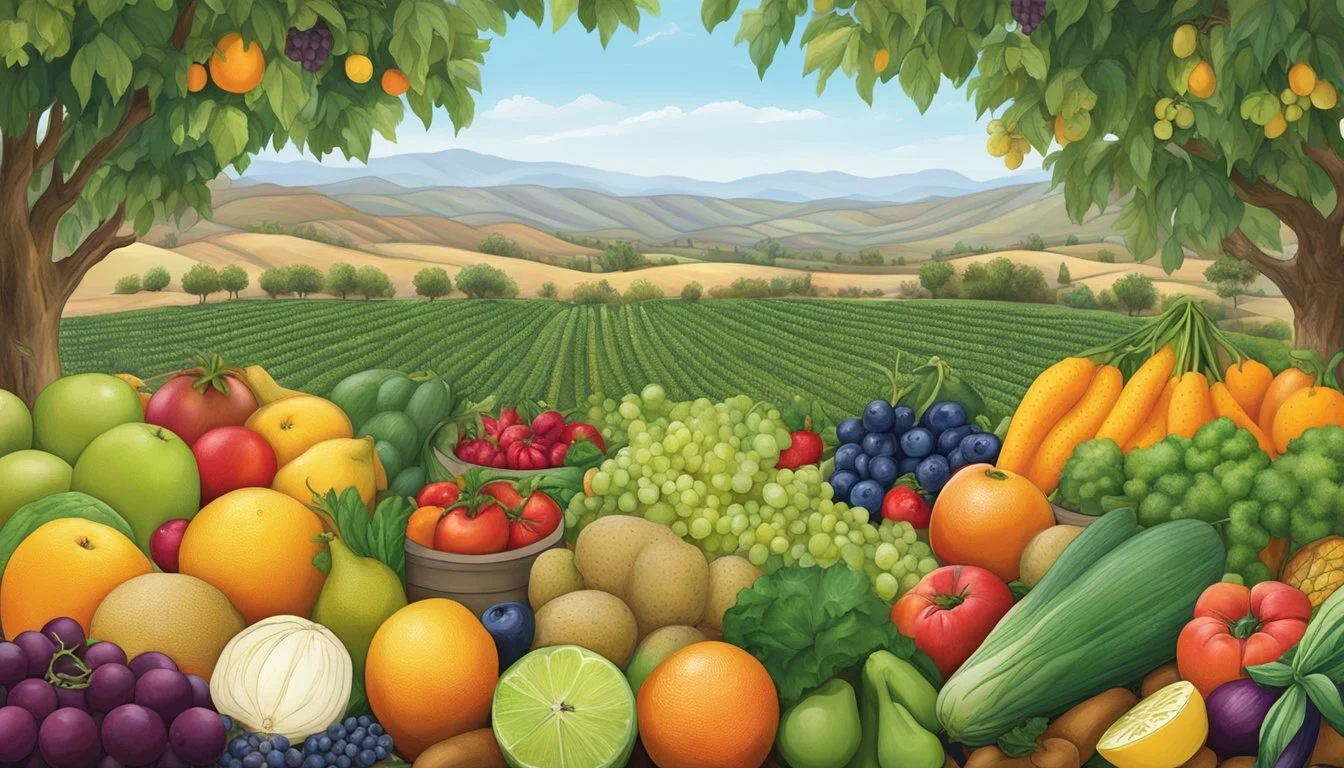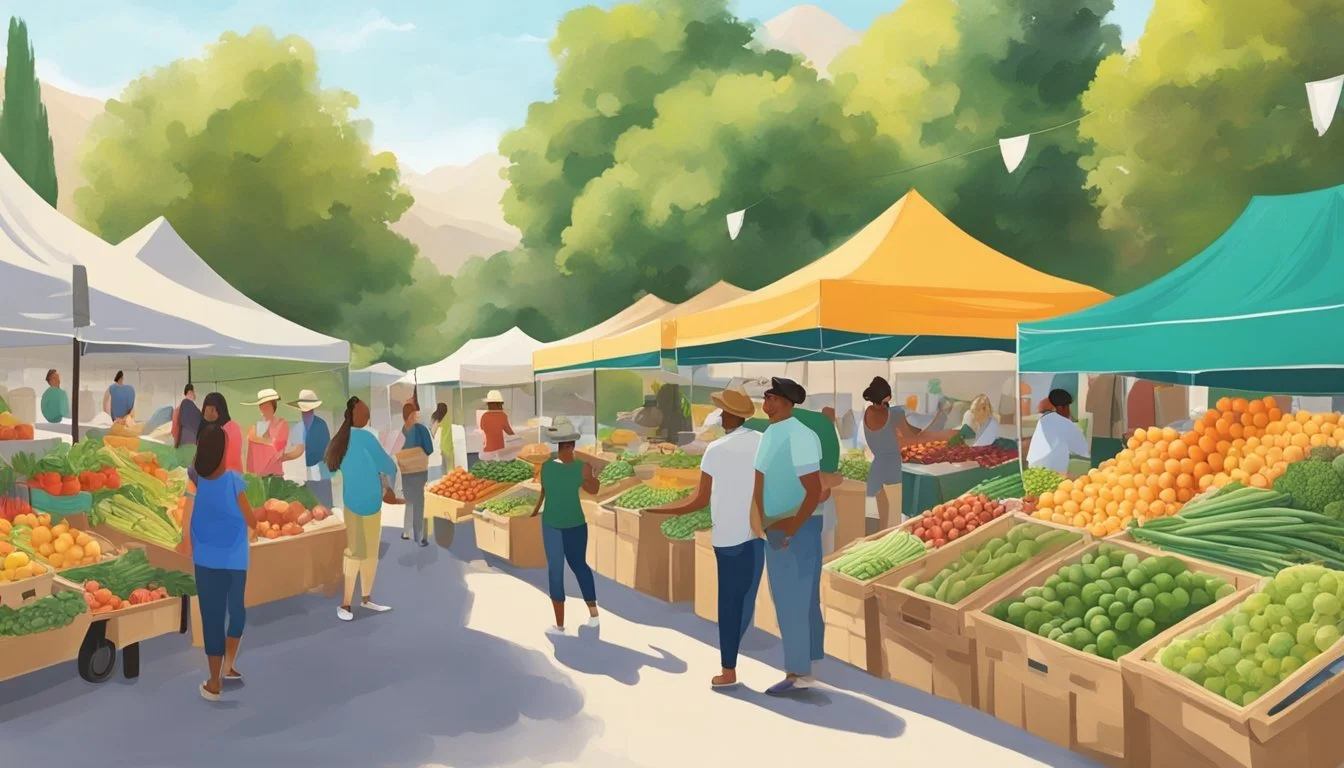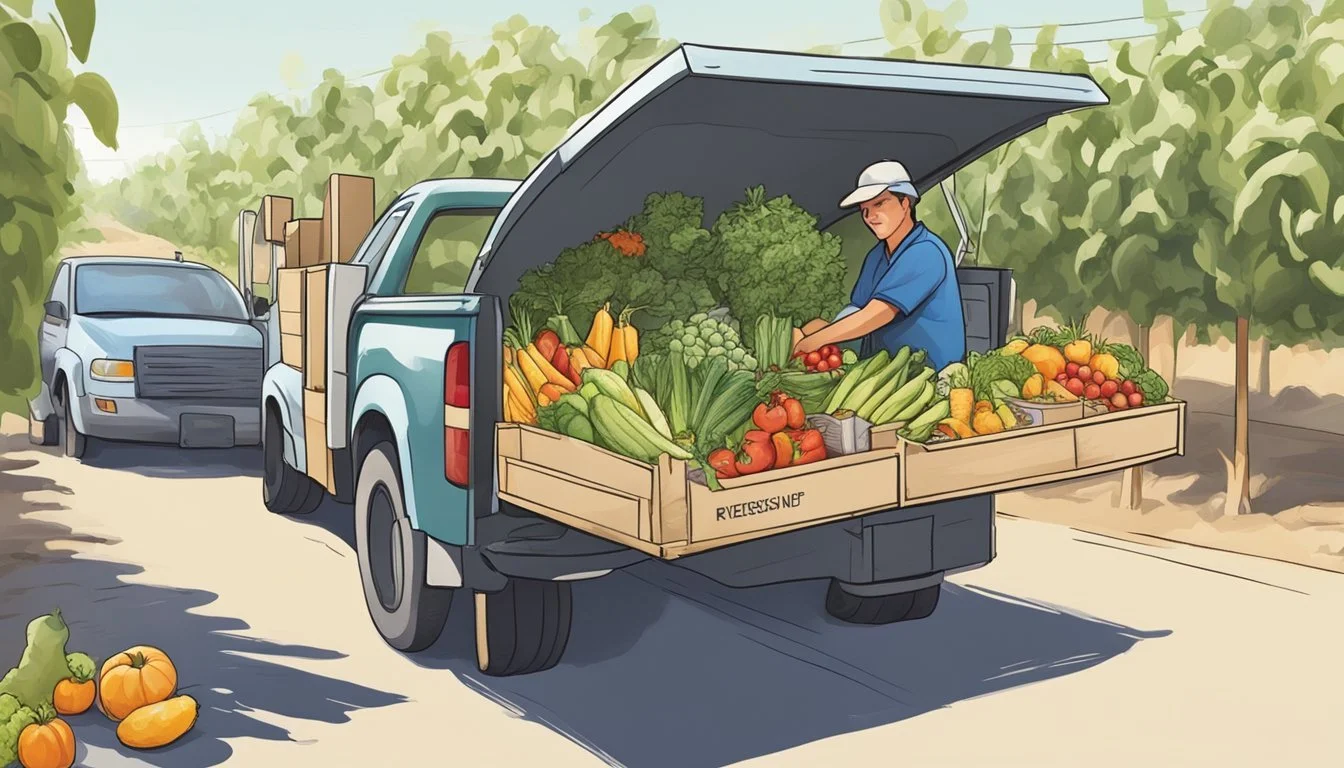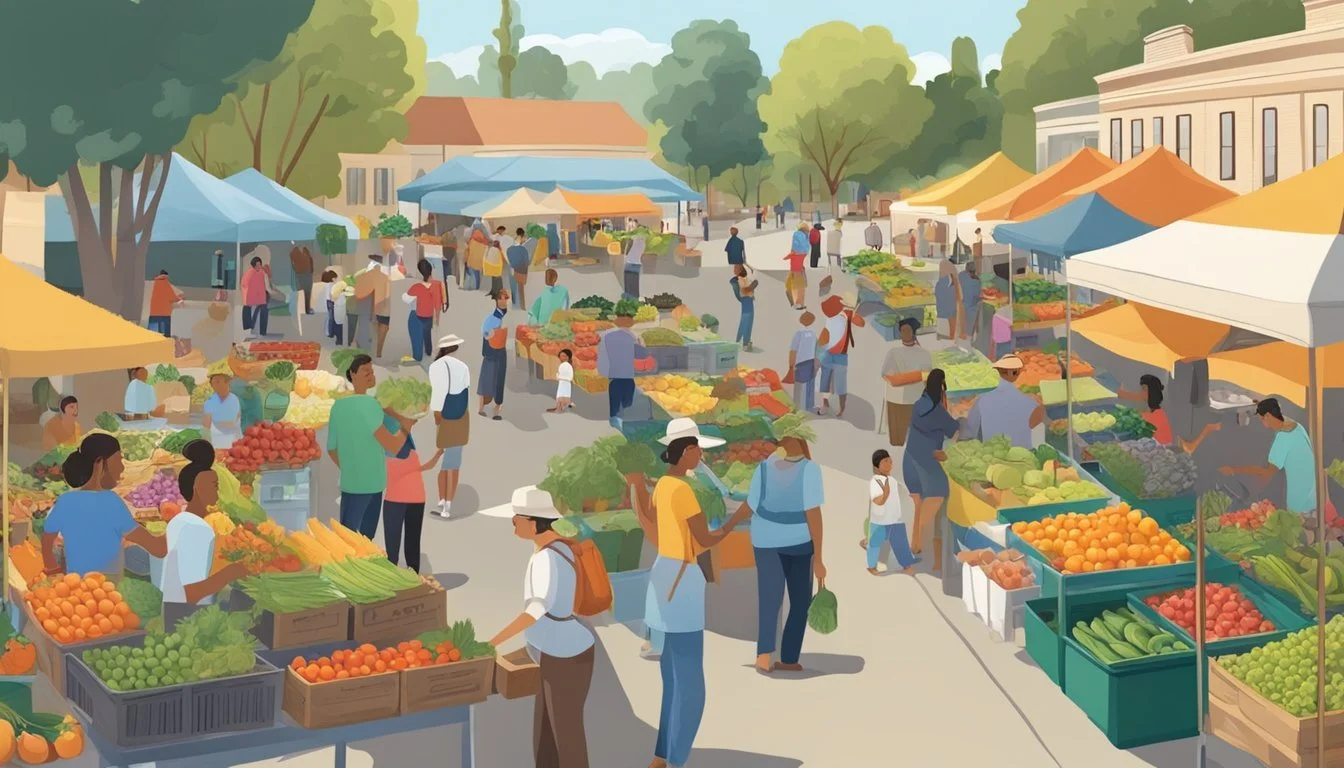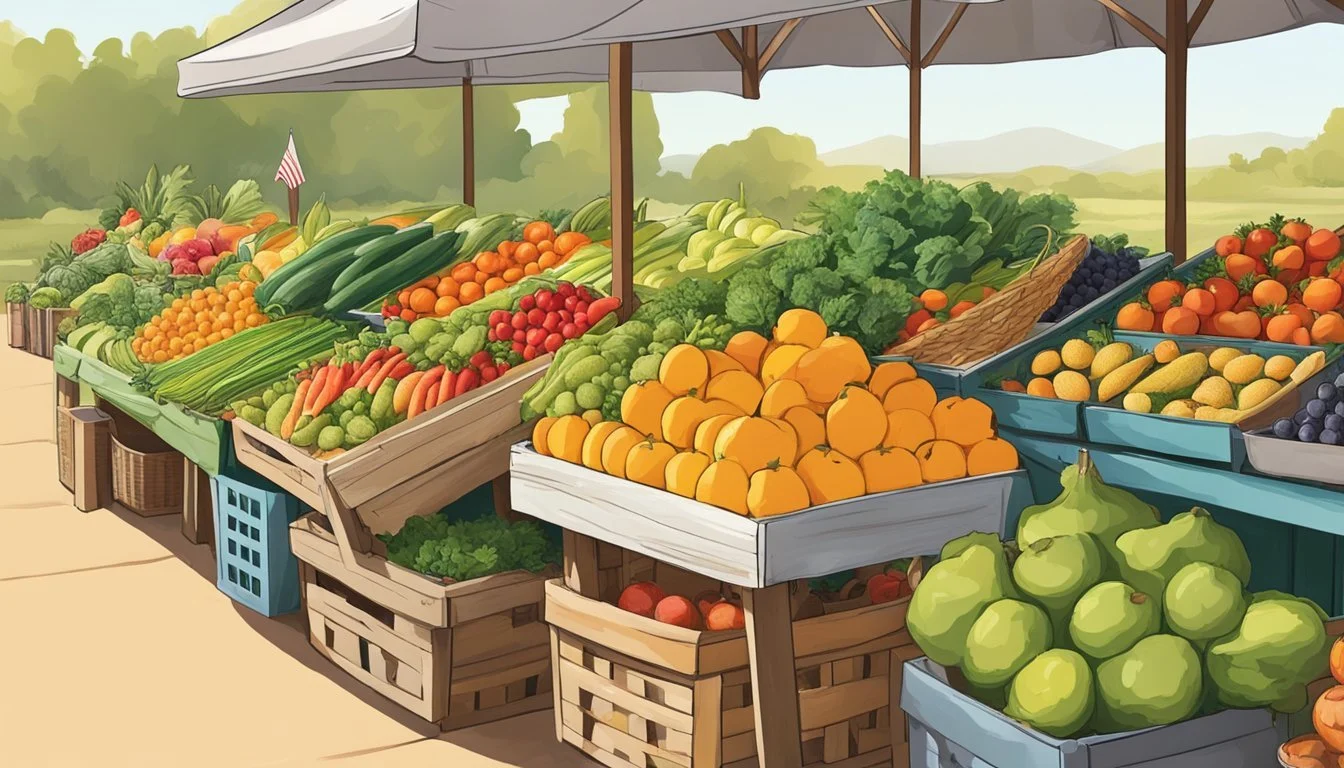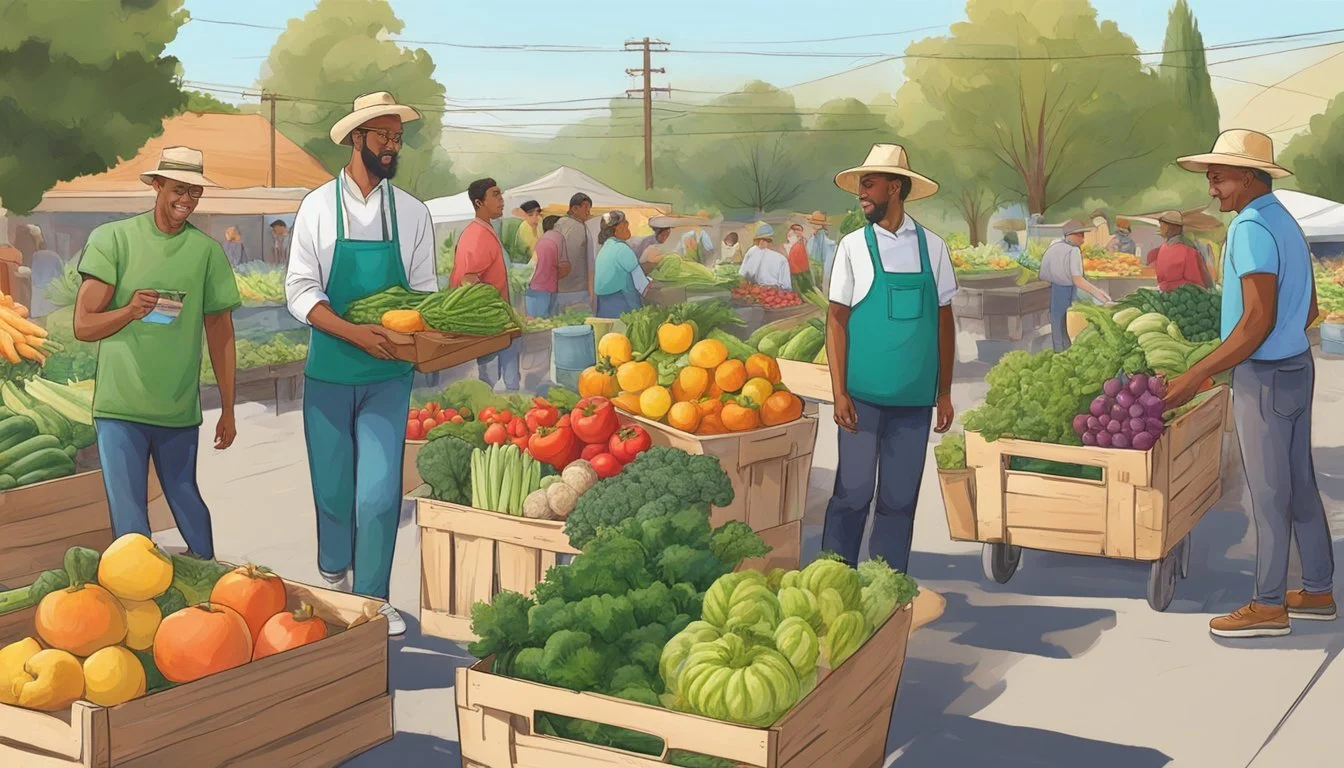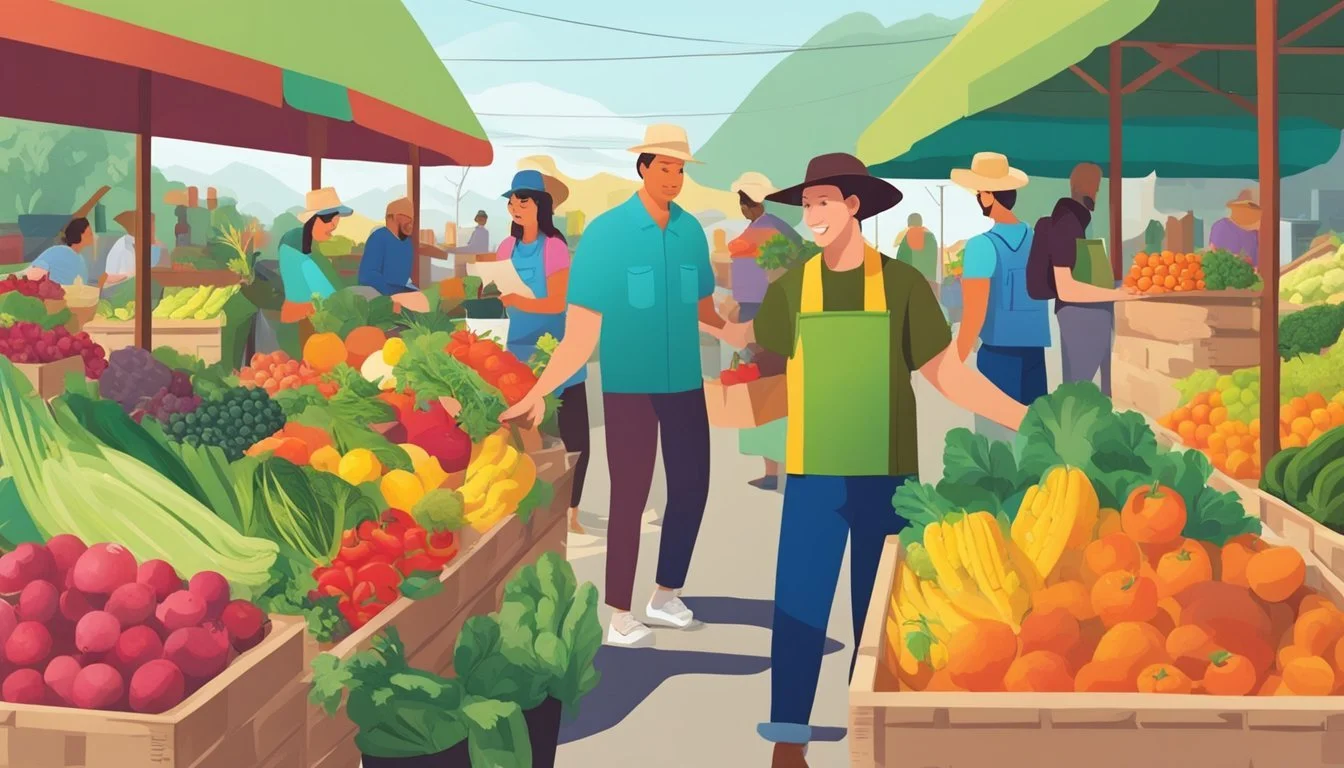Community Supported Agriculture (CSA) in Riverside, CA
A Guide to Local Subscription Farming
Community Supported Agriculture, or CSA, is a model of food production and distribution that directly connects farmers and consumers within the Riverside area in California. Through CSA programs, consumers become members by purchasing shares of a farm's harvest in advance. In return, they regularly receive a portion of the farm's produce throughout the growing season. This model benefits the local community by ensuring that members have access to fresh, locally-grown produce, while farmers gain a reliable market for their crops.
The Riverside region, with its favorable climate and fertile soil, hosts various CSA programs that cater to a wide range of preferences. By joining a CSA, members support the local agricultural community, promote sustainability, and contribute to preserving the environment. Participating farms usually offer a selection of seasonal fruits, vegetables, and sometimes additional products like free-range meat, poultry, and eggs.
Moreover, the CSA model in Riverside helps to strengthen the connection between residents and the food they consume. This not only fosters a sense of community but also enhances the public's understanding of seasonal farming practices and the challenges faced by local farmers. In essence, CSA in Riverside represents a partnership built on mutual commitment to health, community, and sustainability.
Understanding CSA
Community Supported Agriculture represents a model where individuals directly support farms and in return receive a regular delivery of farm products.
History of CSA in Riverside
In Riverside, the CSA model has grown from a niche concept to a valued community practice. Local farms began partnering with residents to provide them with a consistent supply of fresh produce, fostering a stronger community-farmer relationship.
CSA Business Model
The CSA business model is straightforward — consumers purchase a "share" from a local farm, becoming members of the farm's CSA program. Throughout the farming season, they receive a box containing a portion of the farm's harvest. This partnership guarantees the farmer upfront capital and provides members with fresh, seasonally available products.
Benefits of CSA
The benefits of CSA in Riverside abound for both consumers and farmers. Consumers enjoy access to fresh, local produce, often organic and sustainably grown, while farmers gain financial stability and the ability to plan production more effectively. This model underpins a sustainable food system and reinforces the California ethos of supporting local businesses.
How a CSA Works
Community Supported Agriculture in Riverside, CA, operates through a symbiotic relationship between local farmers and community members. It's a system built on pre-arranged financial support and distribution of fresh, often organic produce throughout the growing season.
Membership and Subscription
Consumers in Riverside can join a CSA by purchasing a membership or subscription. This commitment involves a payment to a local farm upfront, which helps the farmer cover the initial production costs. In return, members receive a weekly or bi-weekly share of the harvest during the growing season. This model provides farmers with a more predictable income and allows consumers to become integral supporters of local agriculture.
Share Sizes and Options
CSAs provide flexibility through a variety of share sizes and options to cater to different household needs. The typical offerings include:
Small Share: Suitable for individuals or couples.
Standard Share: Ideal for small families.
Large Share: Best for larger families or groups.
Some CSAs might also offer options for:
Vegetable Shares: A selection of seasonal vegetables.
Fruit Shares: A mix of local fruits.
Full-Diet Shares: Includes dairy, eggs, and meats alongside produce.
Seasonal Variations
The shares are highly dependent on seasonal variations and local climate. Riverside's CSA programs adapt to these changes by offering produce that is currently in season. This means that members can expect a diversity of fresh, seasonal produce throughout the year, which may include summer crops like tomatoes and winter harvests such as citrus fruits. Not all CSAs are year-round; some operate strictly during the traditional growing season, so offering timeframes can vary. Organic options are often available, ensuring that consumers receive pesticide-free produce. Delivery frequency is usually weekly, but some farms offer bi-weekly options to fit different schedules.
Local Impact
Community Supported Agriculture (CSA) initiatives in Riverside, CA, have a pronounced impact on the region's economy and environment. These programs bridge the gap between local consumers and farmers, fostering a robust community and supporting sustainable practices.
Economic Benefits
The local economy benefits significantly from CSAs in Riverside. Local Food consumption boosts income for farmers who serve a dependable customer base through CSAs, stabilizing revenues and reducing market uncertainties. For example, the people from Inland Empire CSA directly support growers in their community like De Luz Farms and Nursery, ensuring that financial resources circulate locally. Moreover, engaging with Farmers Markets extends the reach of these benefits, where producers can attract a broader customer base and demonstrate the value of investing in local agriculture.
Environmental Advantages
CSAs in Riverside contribute positively to the Environment, encouraging eco-friendly farming methods that may result in lower carbon footprints due to reduced transportation distances. Farms like Three Sisters Farm, practicing organic agriculture, exemplify such environmental consciousness by preserving soil health and biodiversity. Furthermore, CSAs can reduce food waste since produce is often harvested to order. The Riverside Food Systems Alliance and projects like urban agriculture initiatives showcase the community's commitment to adapting to urban expansion without neglecting environmental stewardship. Through these efforts, Riverside stands as a testament to how integrative, Community-oriented approaches can foster market resilience and environmental sustainability.
Participating in CSA
Community Supported Agriculture (CSA) in Riverside, California, represents a symbiotic relationship between local farmers and community members. By joining a CSA, members receive fresh, locally-sourced produce while supporting regional agriculture and contributing to food sustainability.
How to Join a CSA
Individuals interested in becoming part of a CSA in Riverside can easily reach out to local farms offering this service. For example, Da-Le Ranch can be contacted via phone at (619) 886-4102 to inquire about subscription options. Another option, such as De Luz Farms and Nursery in Temecula, can be contacted through Gary Leavitt at 951-693-0272. The joining process typically involves:
Contacting the farm: Communication is usually done by phone or email to express interest.
Subscription Commitment: A member commits to a seasonal or annual subscription, providing upfront payment in most cases.
Pick-up or Delivery Arrangements: Establish arrangements for receiving the produce, which may include on-farm pickups or designated delivery points.
Understanding CSA Shares
A share in a CSA refers to the portion of the farm's harvest that a member is entitled to receive. Shares vary in size and content based on:
Seasonal Availability: The produce included depends on what is in season.
Farm Offerings: Farms like Da-Le Ranch may specialize in free-range meat, poultry, and eggs, adding variety to the typical fruit and vegetable offerings.
Members usually have the option to choose different share sizes based on their household needs.
Member Responsibilities
Membership in a CSA carries responsibilities that go beyond the financial commitment. These can include:
Regular Pick-ups: Members must adhere to scheduled pick-up times or communicate promptly if unable to do so.
Share Maintenance: Members might be required to clean and return any packaging provided by the farm.
Community Engagement: Active participation in farm events and volunteer opportunities when available reinforces the sense of community and investment in local agriculture.
By fulfilling these roles, CSA members support a system that has proven to increase household availability of fresh fruits and vegetables and promote healthier eating habits.
Types of Products Offered
Community Supported Agriculture (CSA) in Riverside, CA, offers a wealth of fresh, locally-produced items. Consumers can expect organically grown fruits and vegetables along with a host of additional farm products.
Variety of Produce
CSA programs in Riverside prioritize a diverse range of organic produce. Members commonly receive a selection of seasonal fruits and vegetables that may vary weekly based on what is currently being harvested. This could include everything from leafy greens and root vegetables to citrus fruits and berries. Participating farms showcase their commitment to sustainable agriculture by supplying an abundance of fresh, organic options.
Beyond Vegetables – Additional Offerings
In addition to produce, many Riverside CSAs offer other farm-fresh products. These may include:
Herbs: Freshly picked, aromatic herbs that enhance any meal.
Eggs: Often free-range or pasture-raised, offering a richer flavor.
Honey: Locally sourced honey, which is not only delicious but can also help with local allergies.
Such offerings allow consumers to enjoy a broader spectrum of fresh, quality products while supporting local farmers and their practices.
CSA Management
In Riverside, CA, effective CSA management is critical for the success of local agriculture initiatives. It encompasses farm management practices, balancing risks and rewards, and ensuring efficient logistics.
Farm Management Practices
At the core of CSA in Riverside are organic farming practices. Farms like Three Sisters Farm employ organic methods since their start. Management involves planning and overseeing crop production on typically small acreages dedicated to diverse crops. The use of sustainable practices helps maintain soil health and supports the local ecosystem. Careful selection of crops and adhering to organic standards is crucial for the reputation and quality of CSA programs.
Risk and Reward Sharing
The unique aspect of CSAs is the shared risk between farmers and consumers. Members often pay upfront, which helps the farm with cash flow and investment in the local food market. This capital allows for crop planning and management throughout the season. In return, members are rewarded with fresh produce, sharing the bounty and occasionally, the shortfalls. Transparent communication regarding potential risks associated with farming is essential for maintaining trust.
CSA Logistics
Delivery and distribution are vital aspects of CSA logistics. Farms arrange weekly or bi-weekly shares of produce that can be picked up or delivered to drop-off locations. Farms like Mountain Bounty Farm operate extensive CSA programs, managing the logistics of getting fresh, organic produce from their fields to consumers efficiently. Efficient logistics management ensures high-quality, fresh local food reaches consumers in a timely manner, maintaining the integrity and value of the produce.
Choosing the Right CSA
In Riverside, CA, consumers have the opportunity to connect directly with local farmers through Community Supported Agriculture (CSA) programs. When selecting a CSA, it is important to consider the variety of options available and the standards, including organic certifications, that may align with a consumer's health and environmental priorities.
Assessing CSA Options in Riverside
Consumers should first survey the CSA landscape in Riverside by identifying which farms offer these programs. Notable examples in the area include Da-Le Ranch, known for its free range meat, poultry, and eggs, and Three Sisters Farm, which is a certified organic establishment operating since 2008.
Key considerations when assessing CSA options:
Type of Produce: Each CSA offers a different array of products. Confirm whether they provide the variety of fruits, vegetables, meats, or eggs you seek.
Pickup Locations: Proximity matters. Ensure that the pickup locations and schedules are convenient.
Subscription Flexibility: Consider the terms of CSA membership. Some CSAs offer more flexible subscription plans than others.
When selecting a CSA, it may be beneficial to attend local farmers' markets or contact the farms directly for more detailed information regarding their CSA programs.
Certifications and Standards
Certifications, such as organic, showcase a farm's commitment to certain agricultural practices. For example, Three Sisters Farm has been certified organic since its inception, which indicates adherence to strict organic farming protocols.
Here’s what consumers should look for regarding certifications and standards:
Certified Organic: This label ensures that the farm follows the USDA's organic regulations. It prohibits the use of synthetic fertilizers, pesticides, and GMOs, and promotes ecological balance.
Local Certifications: Some farms might possess local certifications that encourage sustainable practices and support the Riverside economic ecosystem.
Consumers are advised to inquire about each CSA's certifications to make an informed decision that aligns with their personal values related to health and organic products.
CSA Challenges and Solutions
In addressing the complexities of Community Supported Agriculture (CSA) in Riverside, CA, one must consider the inherent challenges related to weather patterns and crop growth, as well as the need for strategies to maintain and grow CSA membership.
Weather and Crop Uncertainties
Riverside's CSAs contend with volatile weather conditions, which can introduce significant risks to crop yield and variety.
Weather Impacts: Droughts, unexpected frosts, or excessive rainfall can compromise both the quantity and quality of crops.
Mitigation: Farmers often employ diverse planting techniques and select crop varieties adapted to local conditions. Utilizing weather forecasting and adopting water-efficient irrigation systems are key strategies to navigate these uncertainties.
Farmers invest in crop insurance and create community-based support systems to distribute risk. These measures help to ensure that even in bad weather years, both the farmers and CSA members share in the success and failure of the harvest.
Strategies for Sustained Membership
Maintaining a robust membership base is critical for the survival and sustainability of CSA programs.
Engagement: Farmers keep members involved by providing continuous communication through newsletters, farm events, and volunteer opportunities.
Flexibility: Offering flexible share sizes and payment plans increases accessibility and caters to varied consumer needs.
Education: Farms educate their members on the value of CSA, including the nutritional, environmental, and community benefits of supporting local agriculture.
CSA models thrive on strong relationships between farmers and the community. Farmers work tirelessly to create a sense of involvement and ownership among members, which is essential for a sustained and supportive membership.
Future of CSA in Riverside
Community Supported Agriculture (CSA) has established a significant presence in Riverside, CA, with growing consumer interest and support for local food systems. This section explores the developments that are likely to shape the trajectory of CSAs in the area.
Trends and Predictions
Market Growth: CSAs in Riverside are likely to see increased market growth. With the global CSA model gaining momentum, Riverside's CSA programs may attract more local consumers who are interested in supporting sustainable agriculture. This is due partly to a growing awareness of the environmental and health benefits of eating locally-sourced produce.
Consumer Engagement: There is an expectation for a surge in consumer engagement as the demand for transparent and ethical food production rises. CSAs may leverage social media and other digital platforms to maintain frequent communication with members, share stories from the farms, and educate consumers about the importance of supporting local food economies.
Membership Models: New membership models could be implemented, allowing for more flexibility in subscription terms, payment plans, and pickup options to cater to a wider range of consumers.
Innovations in CSA
Technology Integration: Technological advancements are set to play a crucial role in the evolution of CSA operations. The use of data analytics could optimize crop planning and distribution logistics, thereby enhancing efficiency and reducing waste. Smart farming techniques may also be introduced, helping farmers better monitor soil health and crop performance.
Diversified Offerings: Innovation may lead to an expanded variety of offerings, including value-added products like artisanal cheeses, bread, and preserved goods. CSA programs might explore partnerships with local food artisans to diversify the contents of their weekly or monthly shares.
Research and Development: Intensified research efforts could underpin the CSA movement's future in Riverside. Universities and agricultural institutions may conduct studies focusing on optimizing CSA models for increased sustainability and community impact. The resulting data could inform CSA practices and policy-making, further strengthening the local food system.

